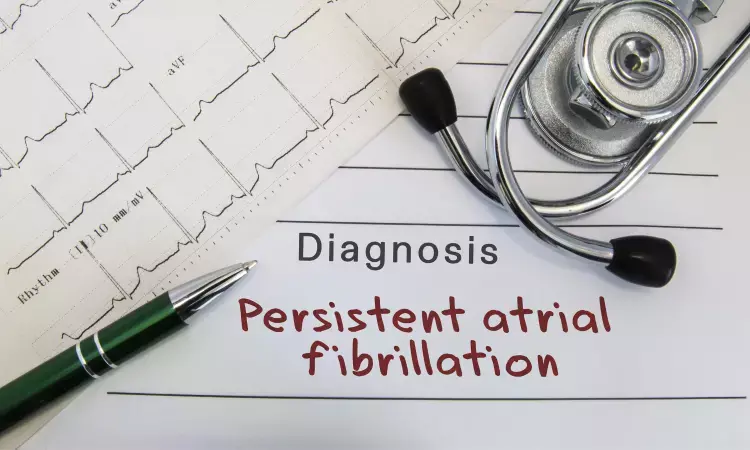- Home
- Medical news & Guidelines
- Anesthesiology
- Cardiology and CTVS
- Critical Care
- Dentistry
- Dermatology
- Diabetes and Endocrinology
- ENT
- Gastroenterology
- Medicine
- Nephrology
- Neurology
- Obstretics-Gynaecology
- Oncology
- Ophthalmology
- Orthopaedics
- Pediatrics-Neonatology
- Psychiatry
- Pulmonology
- Radiology
- Surgery
- Urology
- Laboratory Medicine
- Diet
- Nursing
- Paramedical
- Physiotherapy
- Health news
- Fact Check
- Bone Health Fact Check
- Brain Health Fact Check
- Cancer Related Fact Check
- Child Care Fact Check
- Dental and oral health fact check
- Diabetes and metabolic health fact check
- Diet and Nutrition Fact Check
- Eye and ENT Care Fact Check
- Fitness fact check
- Gut health fact check
- Heart health fact check
- Kidney health fact check
- Medical education fact check
- Men's health fact check
- Respiratory fact check
- Skin and hair care fact check
- Vaccine and Immunization fact check
- Women's health fact check
- AYUSH
- State News
- Andaman and Nicobar Islands
- Andhra Pradesh
- Arunachal Pradesh
- Assam
- Bihar
- Chandigarh
- Chattisgarh
- Dadra and Nagar Haveli
- Daman and Diu
- Delhi
- Goa
- Gujarat
- Haryana
- Himachal Pradesh
- Jammu & Kashmir
- Jharkhand
- Karnataka
- Kerala
- Ladakh
- Lakshadweep
- Madhya Pradesh
- Maharashtra
- Manipur
- Meghalaya
- Mizoram
- Nagaland
- Odisha
- Puducherry
- Punjab
- Rajasthan
- Sikkim
- Tamil Nadu
- Telangana
- Tripura
- Uttar Pradesh
- Uttrakhand
- West Bengal
- Medical Education
- Industry
Coffee consumption tied to incident Atrial Fibrillation, study suggests

United States: Researchers have highlighted an association between coffee consumption and incident Atrial Fibrillation (AF) in a new study. According to the research middle-aged and older adults' risk of developing new-onset atrial fibrillation (AF) tended to increase with the amount of coffee they drank, but not consistently so.However, risk was more than doubled among those drinking the greatest amounts.
The study findings have been published in the American Journal of Cardiology.
The study was conducted to investigate to find the potential dose-dependent relation between coffee intake and AF incidence in a multi-ethnic setting.
There are previous studies comprising White populations, but there is a limitation of data regarding the exploration of dose dependency.
To address the gap, as mentioned earlier, researchers analyzed the Multi-Ethnic Study of Atherosclerosis data, a prospective cohort study.
The lead researcher is Ojasav Sehrawat from the Department of Cardiovascular Medicine, Mayo Clinic, Rochester, Minnesota.
The study points are:
- There were three groups in the primary analysis.
- The groups were non-consumers, 1 to 3 cups/month, and ≥1 cup/week.
- The researchers stratified the cohort into nine gradual increments for coffee consumption groups for the secondary analysis.
- A multivariable cox proportional hazards regression model was adjusted for six potential confounders, including age, gender, smoking, hypertension, diabetes and alcohol.
- A higher incidence of AF was recorded in subjects who drank ≥1 cup of coffee/per week; the adjusted hazard ratio was 1.40. (compared to non-consumers).
- In the group consuming most coffee (≥6 cups/day), AF incidence was highest, 9.8%.
The Stratification based on race/ethnicity indicates the results may be driven by White and Hispanic rather than Black or Chinese-American subgroups.
The researcher concluded there is an association between the consumption of coffee and the incidence of AF.
There are several limitations of the study which include a) Coffee intake was self-reported and collected only once at baseline.b) Results may have been affected by residual and unmeasured confounding. c) Sample size may have been insufficient to detect associations in some subgroups.
Further reading:
Sehrawat O, Mehra NS, Kowlgi NG, Hodge DO, Lee JZ, Egbe AC, DeSimone CV, Madhavan M, Siontis KC, Noseworthy PA, Asirvatham SJ, Deshmukh AJ. Association Between Coffee Consumption and Incident Atrial Fibrillation (from the Multi-Ethnic Study of Atherosclerosis [MESA]). Am J Cardiol. 2023 Jan 1;186:5-10. doi:10.1016/j.amjcard.2022.10.025. Epub 2022 Nov 3. PMID: 36334435
BDS, MDS in Periodontics and Implantology
Dr. Aditi Yadav is a BDS, MDS in Periodontics and Implantology. She has a clinical experience of 5 years as a laser dental surgeon. She also has a Diploma in clinical research and pharmacovigilance and is a Certified data scientist. She is currently working as a content developer in e-health services. Dr. Yadav has a keen interest in Medical Journalism and is actively involved in Medical Research writing.
Dr Kamal Kant Kohli-MBBS, DTCD- a chest specialist with more than 30 years of practice and a flair for writing clinical articles, Dr Kamal Kant Kohli joined Medical Dialogues as a Chief Editor of Medical News. Besides writing articles, as an editor, he proofreads and verifies all the medical content published on Medical Dialogues including those coming from journals, studies,medical conferences,guidelines etc. Email: drkohli@medicaldialogues.in. Contact no. 011-43720751


